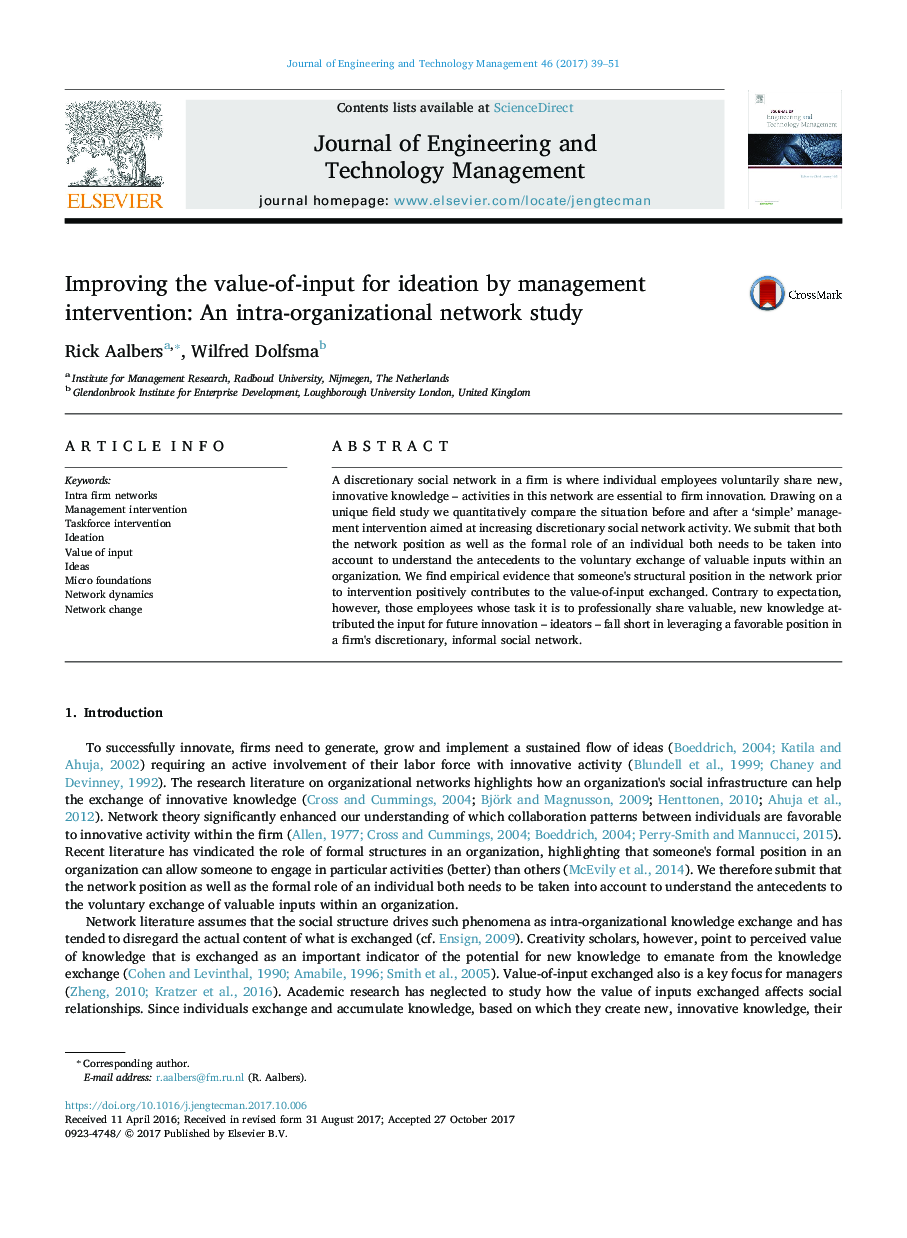| Article ID | Journal | Published Year | Pages | File Type |
|---|---|---|---|---|
| 6482330 | Journal of Engineering and Technology Management | 2017 | 13 Pages |
Abstract
A discretionary social network in a firm is where individual employees voluntarily share new, innovative knowledge - activities in this network are essential to firm innovation. Drawing on a unique field study we quantitatively compare the situation before and after a 'simple' management intervention aimed at increasing discretionary social network activity. We submit that both the network position as well as the formal role of an individual both needs to be taken into account to understand the antecedents to the voluntary exchange of valuable inputs within an organization. We find empirical evidence that someone's structural position in the network prior to intervention positively contributes to the value-of-input exchanged. Contrary to expectation, however, those employees whose task it is to professionally share valuable, new knowledge attributed the input for future innovation - ideators - fall short in leveraging a favorable position in a firm's discretionary, informal social network.
Related Topics
Social Sciences and Humanities
Business, Management and Accounting
Accounting
Authors
Rick Aalbers, Wilfred Dolfsma,
